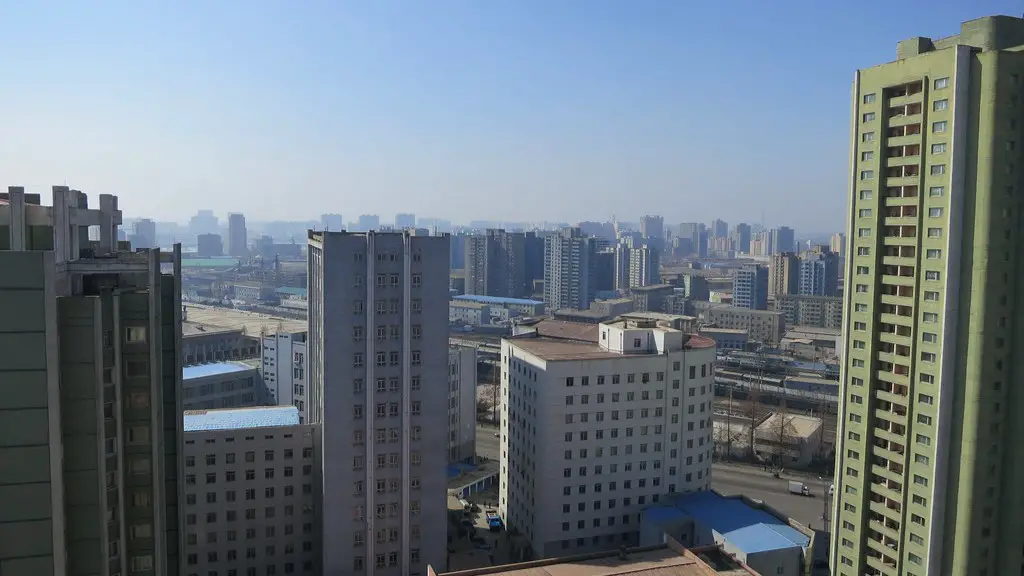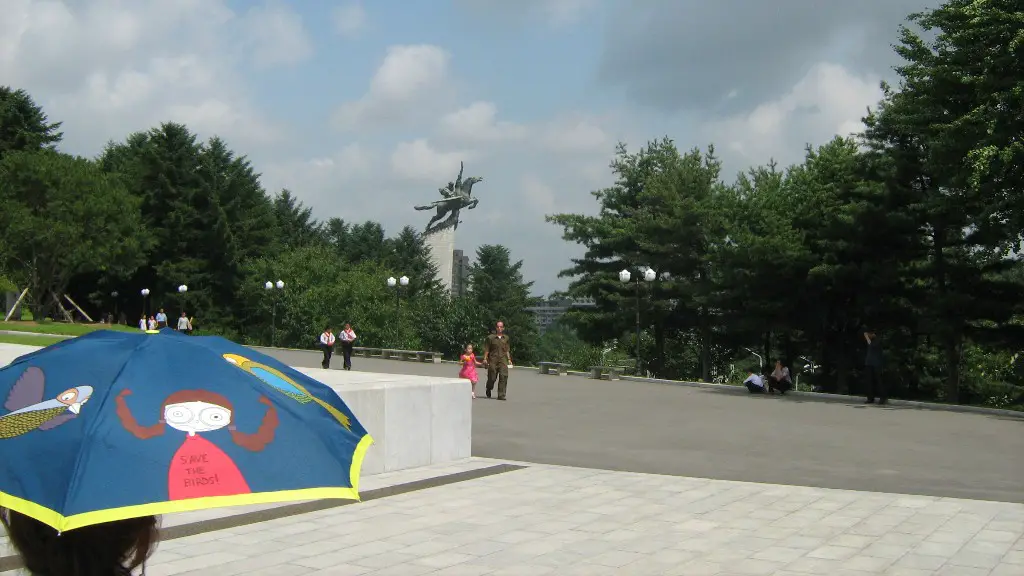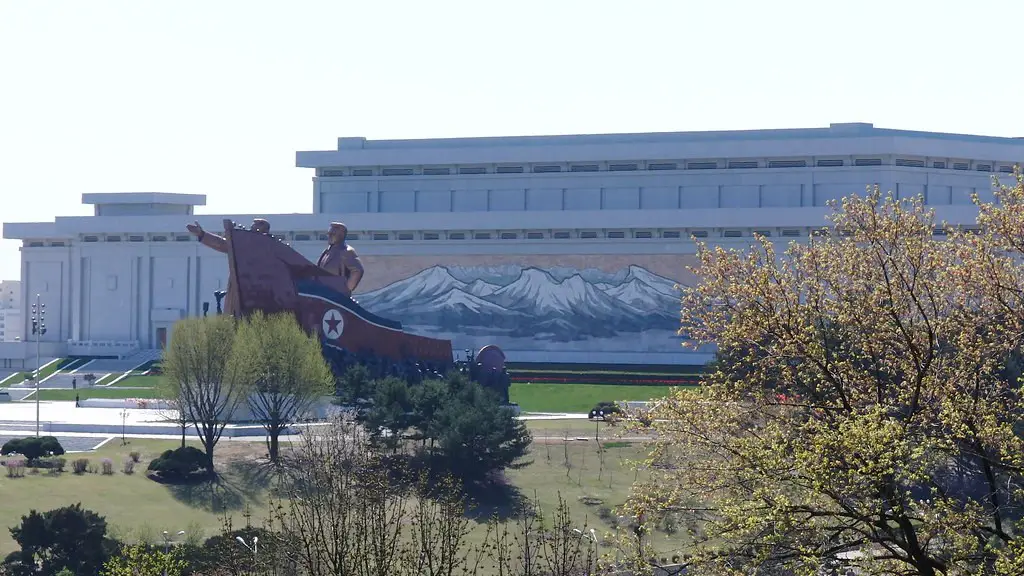The notion of why don’t we just destroy North Korea is a complex one, and not one to be taken lightly. The country is one of the most isolated nations in the world, led by an oppressive and often belligerent regime that has kept the people of North Korea cut off from the outside world for decades. Despite the increasing economic, political, and human rights restrictions that North Korea has imposed on itself, the international community has struggled to find a viable solution to the conflict.
The most commonly cited explanation for not engaging in military action against North Korea is that a conflict could easily spark a large-scale war in the region, involving neighboring countries such as South Korea, Japan, and possibly even China. The potential for nuclear use in such a conflict would result in unimaginable destruction and suffering for all those involved.
China, in particular, has long been an ally of North Korea and is key in bargaining for a peaceful solution to the conflict. After North Korea conducted its fourth nuclear test in 2016, the UN Security Council imposed additional sanctions on North Korea, but China, being North Korea’s closest ally, refused to meet the full extent of the sanctions. China believes that any potential US military action could lead to a humanitarian crisis on its borders.
Experts also point to the North Korean government’s ‘military-first’ mindset as a major reason why no foreign country can readily intervene. With its sizable nuclear arsenal, North Korea is one of the most heavily armed countries in the world, and its military-first mentality has been both a source of strength and vulnerability. By relying heavily on its military capabilities, the North Korean government is able to maintain its grip on power and prevent any foreign interference in its domestic affairs.
As a result of these factors, many people advocating a peaceful resolution to the conflict point to the importance of diplomacy and negotiation. South Korea has long championed dialogue as the only viable solution to the ongoing tensions with North Korea, offering to provide food, fuel, and medical assistance to North Koreans in return for a reduction in its nuclear arsenal. Similarly, the United States has recently proposed negotiations to North Korea in an effort to find a peaceful solution to the conflict.
While such efforts have yet to lead to real progress, many experts believe that a diplomatic solution is the only viable way to address the threat posed by North Korea. Ultimately, any viable solution must achieve three goals: eliminate the threat of nuclear war, secure the long-term security of North Korea’s people, and ensure the freedom of North Koreans to pursue their own destiny without fear of reprisal.
Containment and Sanctions
Sanctions imposed by the United Nations Security Council have had some success in isolating North Korea and reducing its reliance on foreign resources, but they have done little to inspire change in Pyongyang’s policies. The sanctions have targeted North Korea’s major exports, such as minerals and computer equipment, but they appear to have had little effect on the actions of the North Korean government.
The United States has also implemented a policy of containment towards North Korea, hoping that the country’s isolation will ultimately lead to the collapse of the regime. However, this policy has been criticized for failing to account for the potential consequences of such an action. North Korea’s collapse could lead to a power vacuum in the region, and this could result in a destabilization of nearby countries, jeopardizing the safety and security of the entire region.
The United States has also maintained a naval presence in the waters around North Korea and routinely conducts “freedom of navigation” exercises, which are meant to serve as a deterrent to North Korea’s military activity. This, too, has had little effect on North Korea’s long-term trajectory.
Strategies of Engagement
As North Korea continues to remain impervious to the international community, analysts have suggested that a more constructive approach of engagement may be more effective in creating change. Countries such as China and South Korea, both of which have close political and economic ties to the North Korean government, can have an outsized influence on North Korea’s policies.
China has already taken a more proactive diplomatic role in recent years, pushing for closer dialogue between North and South Korea and providing economic incentives to Pyongyang. South Korea has adopted a policy of engagement, sending humanitarian aid to North Korea and holding talks with North Korean officials at the same time that it wrestles with the United States to increase economic sanctions.
Experts believe that if North Korea were to be opened up to the world, it would face pressure to reform its human rights abuses and to embrace economic openness. This, in turn, could lead to an increase in prosperity and the easing of geopolitical tensions in the region. However, the North Korean government remains unwilling to accept any foreign influence and has instead double-downed on its hardline stance towards the international community.
Role of the United Nations
The United Nations has long played a role in attempting to resolve the North Korean stalemate, but its ability to influence the situation is limited by the Security Council’s powerlessness to enforce resolutions. While the UN has imposed economic sanctions on North Korea, their enforcement is largely left to the discretion of individual countries and the North Korean government continues to be able to operate with impunity.
The UN has also struggled to make meaningful progress on the humanitarian side of the conflict, as the North Korean government has continually been uncooperative and has refused to accept aid from the international community. Despite these hindrances, the UN has continued to work with countries in the region to attempt to negotiate a peaceful solution to the conflict.
The Future of North Korea
Given the complexity of the situation, it appears that the North Korean conflict is unlikely to be resolved anytime soon. Until the international community is able to find a viable solution that both the United States and North Korea can agree on, the future of North Korea and the region remains uncertain.
The lack of international consensus on the matter, as well as the risk of further destabilization in the event of military action, makes it clear that the only feasible option for the time being is for all parties to maintain a policy of engagement and work towards finding a diplomatic solution.
North Korea’s Nuclear Weapons
The specter of North Korea’s nuclear weapons is one of the major sticking points in the talks between North Korea and the international community. North Korea has tested five nuclear weapons, most recently in 2017, and is believed to possess up to 30 nuclear warheads.
The international community has called on North Korea to comply with existing UN resolutions condemning its nuclear program and has sought to limit its access to materials and technology that could be used in the production of such weapons. However, North Korea has remained defiant, claiming that its nuclear weapons are a deterrent against a possible invasion by the United States.
The international community must grapple with the delicate balance between containing North Korea’s nuclear ambitions and avoiding any potential escalation of the conflict. Given that military action has already been proven to be ineffective in change North Korea’s behavior, the best option for the time being appears to be to maintain the current policy of containment and diplomacy.
Rising Tensions between North and South Korea
The tensions between North and South Korea remain high, and the two countries have yet to reach a peaceful settlement of their differences. In the past, North Korea has engaged in provocations such as long-range rocket tests and troop buildup, as well as threatening rhetoric toward South Korea and the United States. Despite South Korea’s attempts to engage in talks, North Korea has consistently refused to engage in dialogue and continues to employ aggressive rhetoric.
This has only served to exacerbate the situation, as the South Korean government has been forced to take increasingly hardline stances towards the North. While South Korea has vowed to take steps to defuse tensions in the region, North Korea’s unwillingness to cooperate with the South or the international community has only served to worsen the situation.
It remains to be seen how the situation between North and South Korea will develop in the coming years, but the alarming rhetoric coming from both sides of the border suggests that tensions between the two nations remain high and the prospect of a peaceful solution appears distant.





